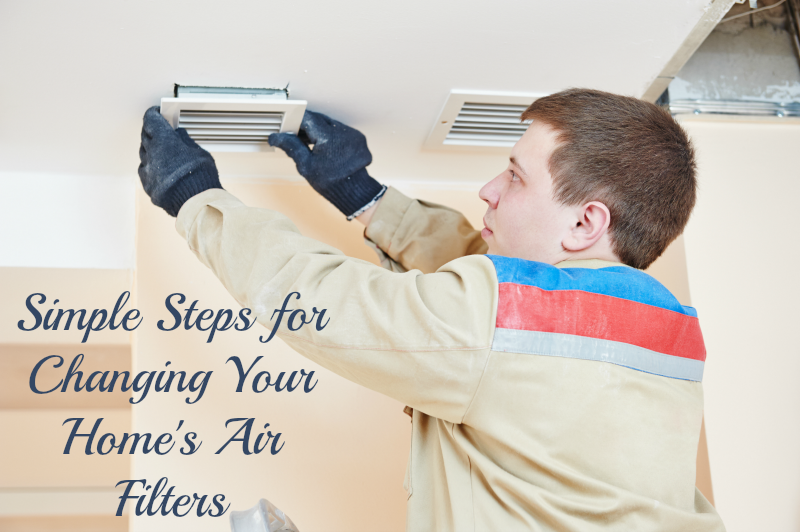Everyone knows how important and beneficial to your health it is to enjoy good air quality in your home, which is a why you need to get around to changing your air filters.
The most commonly used type of filter you will find in your HVAC system are pleated air filters and once you have established what type you actually need for your home, it makes sense to learn how to get the job of changing them done, in no time at all.
Different types of air filter
There are a good number of homeowners who don’t get around to changing their air filter as often as they should, simply because they don’t really know what they need to do or what type of air filter they need.
It is not overly complicated and a quick run through of the different types of air filter available will soon put you right and allow you to identify what you need for your system.
The various types of home air filters will offer you different levels of performance and also have differing maintenance requirements. The fundamental point to remember is that in general terms, whatever type of air filter you have, it will provide optimum performance when it is new and when it is as clean as possible.
Pleated air filters are commonplace in many home systems. They work well in collecting both large and small particles, which means that they should be efficient in dealing with things like mites and spores. To get the best out of your pleated air filter, it should be changed according to the manufacturer’s instructions.
Other air filter available include fiberglass and disposable or permanent electrostatic. Disposable fiberglass filters are relatively inexpensive, but are often not as efficient as a pleated air filter, meaning that they will take care of bigger particles like dust and general debris, but won’t work so well as a pleated version in collecting smaller particles.
If you install a permanent electrostatic filter, it is machine washable which may help in costs rather than replacing, but you can’t realistically expect this type to collect as many particles as a pleated version. A disposable electrostatic filter works the same way as a permanent one, using electrically charged fibers to collect particles, but the disposable version is likely to prove a bit more effective than a permanent electrostatic filter.
When the time is right
There is no question that the type of filter you have will be an influential factor in determining when the time is right to change it, so that you can enjoy maximum efficiency and clean air in your home.
As well as finding out the suggested lifespan of your filter, also gather some clues using your nose and general state of health. If you notice that the air does not seems as fresh as it has been or you are noticing that your allergies have flared up, or you are getting more frequent colds, it might be an opportune time to change your filter, or maybe consider choosing a different type, for better efficiency in collecting particles.
In terms of knowing when to change your filter, the stock answer is that your filters should be changed when they are dirty.
How many people live in your home, the layout and conditions, the type of filters you are using, are all things that can affect the life of your air filter. Get into a routine of checking the condition of your filter on a monthly basis, and you should be able to stay on top of the performance of your HVAC.
Efficiency rating
If you are still a bit confused about which type of filter to buy for your HVAC system, you might want to consider using the Minimum Efficiency Reporting Value (MERV), which is given to each air filter.
This rating will guide you on how efficient it is in trapping the various particles infiltrating your home. However, the rating which is between one and thirteen, with the higher MERV rating signifying a greater level of efficiency, needs to be viewed in conjunction with your needs, rather than in isolation.
You may think that an air filter with a high MERV rating is the best choice, but it should be remembered that the greater its efficiency rating, the lower the airflow you can expect, which will make your system more expensive to run.
The best air filter for you will likely be based on not just a decent MERV rating, but also one that fits your needs and is best suited to your HVAC system, so ask your supplier for guidance if you are not sure.
Stephan Reed is a handyman with his own business servicing his local area. One of those guys who is happy to help, and full of useful info, he is now sharing his knowledge with an online audience.
